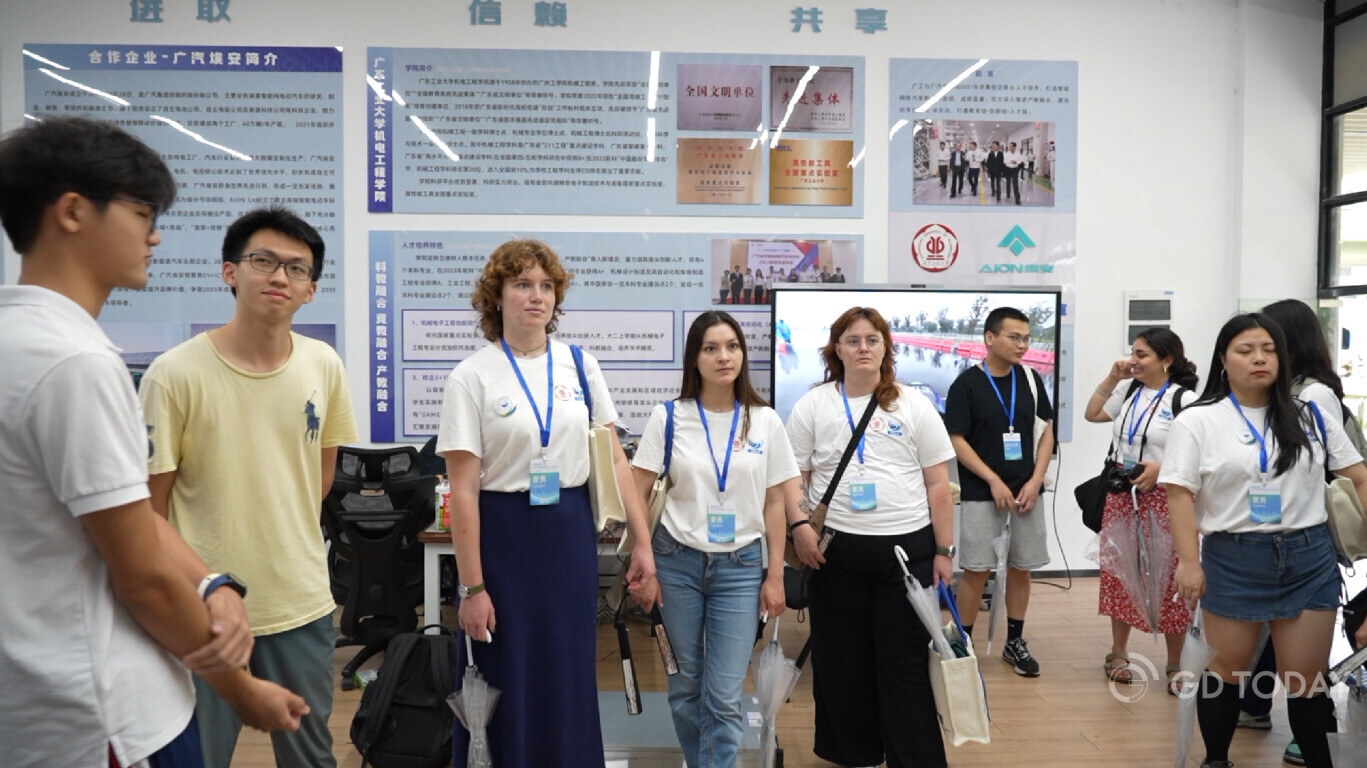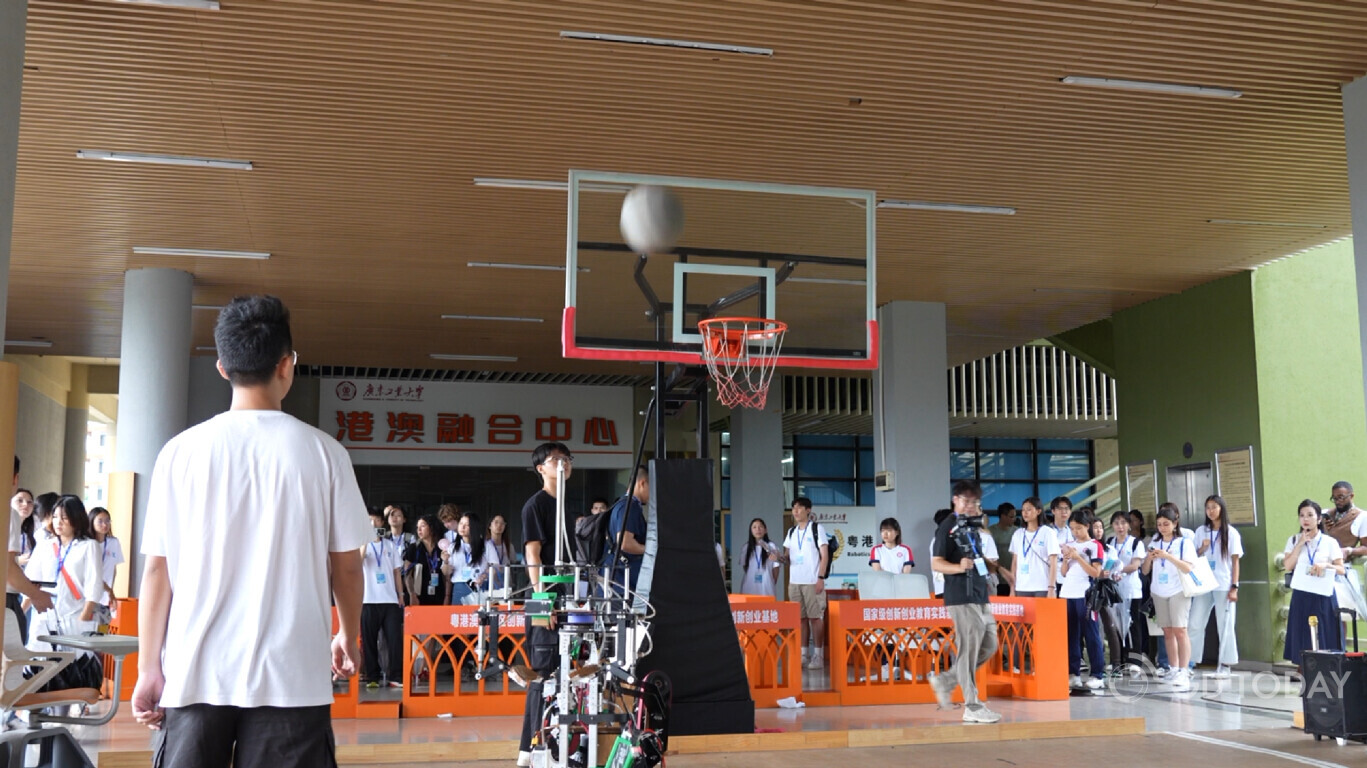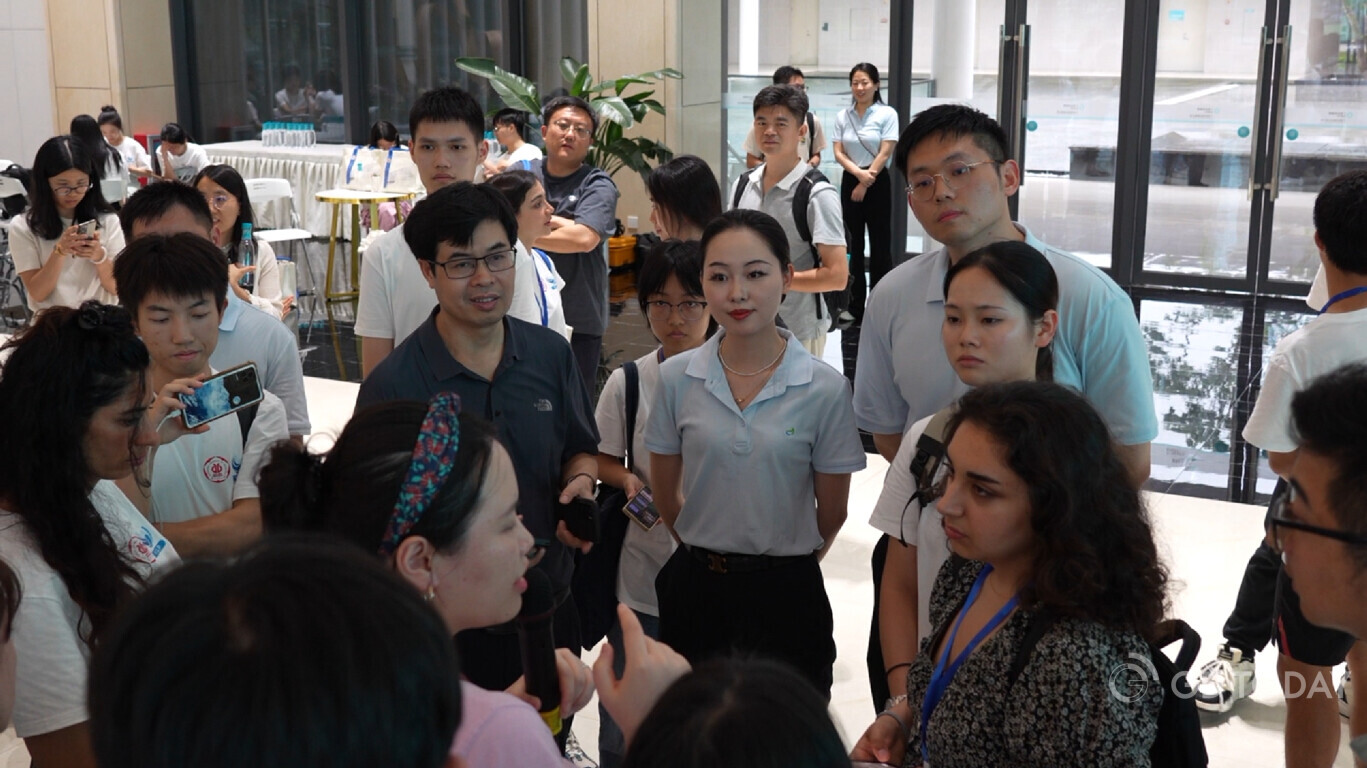From June 16 to 17, 47 students from top American and Chinese universities convened in Guangzhou for the 2025 China-US Youth Future Climate Leadership Exchange Program (YCLP), with field research at three flagship sustainability sites: the Innovation Hub of Guangdong University of Technology, the smart 110kV Lieqiao Substation, and the Lijiao Water Treatment Plant operated by Guangzhou Water Purification Co., Ltd.

Students from the US visit innovation programs at Guangdong University of Technology
At the university innovation hub, UC Berkeley PhD candidate Em Finkelstine observed real-time water quality monitoring systems and solar desalination prototypes. "We've been seeing water filtration techniques that are really cool," she noted, impressed by membrane bioreactor demonstrations. "The education system here is geared toward innovation – it's not just theoretical." Her anticipation grew for upcoming visits: "I'm excited to see substations managing renewable integration, advanced waste treatment plants, and next-gen electric vehicles."
University of Washington, Seattle biology major Kevin Mustain saw cross-disciplinary potential: "I hope to bring environmental studies into my major and cohort." Contrasting common pre-med tracks among peers, he emphasized, "This trip lets me share climate change awareness and information beyond conventional academic boundaries." His hands-on examination of bioremediation techniques at the water plant later reinforced this conviction.

Chinese and U.S. students greet self-designed "basketball robots" at Guangdong University of Technology
During the visit to Lijiao Water Treatment Plant, Natalie Vie, a doctoral candidate at Yo San University of Traditional Chinese Medicine, found the water treatment visit to hold profound resonance. Having survived California's catastrophic 2024 wildfires, where "fire retardants and chemicals dropped onto the land entered our water system," she praised Guangdong's safeguards: "It's wonderful to see so much effort ensuring water elements are safe to drink." Vie also connected ecological degradation to her profession: "The cost of the herbs we use keeps going up and up and up because of climate change."

U.S. students ask questions and discuss local water treatment in Guangzhou
Isaiah Immanuel Blake, a PhD in Geography from UC Berkeley, identified institutional strengths during the substation tour, where green and low-carbon technologies are applied to cut annual carbon emissions by about 140.3 tons, such as prefabricated assembly technology and rooftop photovoltaic power generation technology, in addition to an increased energy-saving rate of 26.1%.
"There's a language and consensus around climate action that's refreshing to see at the state level," he said. The program's design particularly moved him: "The vehement interest in connecting youth across the Pacific shows real recognition that climate leadership must be co-created."
This initiative coincided with the Memorandum of Understanding (MOU) on Deepening Green Development Cooperation between Guangdong Province and California. The program seeks to cultivate climate awareness and problem-solving capabilities among youth from both nations, harnessing their energy to combat the global climate crisis.
Reporter: Guo Zedong
Photo: Liang Zijian
Video: Liang Zijian
Video cover: Liang Zijian
Editor: Yuan Zixiang, James, Shen He
版权及免责声明:凡本网所属版权作品,转载时须获得授权并注明来源“英国富中传媒”,违者本网将保留追究其相关法律责任的权力。凡转载文章,不代表本网观点和立场。版权事宜请联系:619378122@qq.com。


